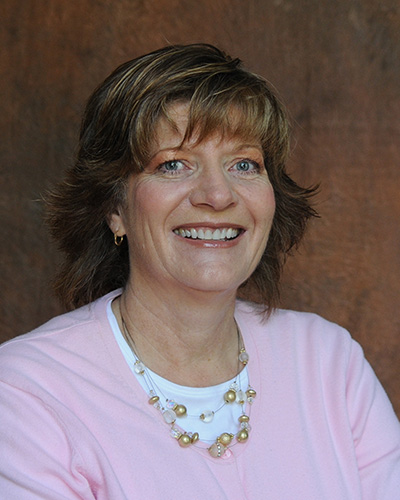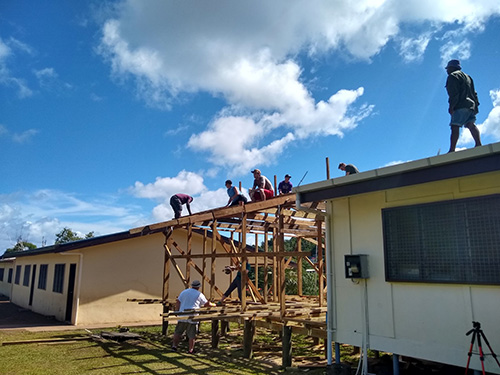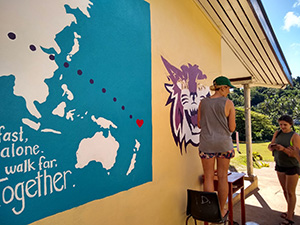WSU Honors Hinckley Collaboration Winners for Service to Education Locally and Internationally
OGDEN, Utah – Weber State University’s Office of the Provost presented the 2020 John S. Hinckley Fellow and the Exemplary Collaboration Award to faculty and staff who have shared the gift of education locally and around the world.
John S. Hinckley Fellow
Associate professor of special education Shirley Dawson was selected as this year’s Hinckley Fellow. As a first-generation college graduate, she has devoted her life to teaching. Dawson began her career in the Jordan School District, where she worked for 22 years in a variety of positions, including teaching third, fourth and fifth grades, working with students with disabilities and those with severe autism. She also served as the gifted and talented coordinator for junior high students for the state of Utah. She eventually earned a Ph.D in special education and transitioned to higher education.
 Dawson joined the faculty of Weber State in 2013 where, through scholarship, leadership and instruction, she has shared her passion with future teachers. Dawson is the chair of Weber State’s Teacher Assistant Pathway to Teaching (TAPT), which supports six nearby school districts in finding and educating quality teachers. She also directs Weber State’s chapter of the Council for Exceptional Children.
Dawson joined the faculty of Weber State in 2013 where, through scholarship, leadership and instruction, she has shared her passion with future teachers. Dawson is the chair of Weber State’s Teacher Assistant Pathway to Teaching (TAPT), which supports six nearby school districts in finding and educating quality teachers. She also directs Weber State’s chapter of the Council for Exceptional Children.
In a nomination letter for the award, a student who has worked with Dawson in both capacities and has also conducted and presented research with Dawson wrote, “I count Dr. Dawson as a mentor and someone I can trust. She helped change my life and the way I look at education. She has seen things I am capable of but have overlooked and has pushed me in directions I never knew I could go.”
At the core of her work, Dawson focuses on changing individual lives through education. For example, as the WSU and Ogden City School District Adult Transition Program chair, Dawson has supported the effort to bring seven students with cognitive disabilities to WSU for a successful transition to academic life.
Dawson has also researched and written widely. In 2018, hers was one of only two projects awarded funding by the National Center for Special Education Research Institution of Education Sciences. She has presented at more than 60 international, national, state and local conferences and has been awarded over $500,000 to fund research and community service projects from sources outside the university.
Most recently, she co-published a four-part series for practitioners regarding special education and career technical exploration in the online journal of the Association for Career & Technical Education.
“I am honored to be recognized by my peers for the Hinkley Fellow Award. I define myself as a teacher, and I believe our jobs are about making a difference,” Dawson said. “The legacy of John S. Hinkley, and the essence of what we are doing, is to make a difference every day.”
The John S. Hinckley Fellow Fund was established in November 1990 to honor a faculty member who has excelled in teaching, scholarship and service. John Hinckley was president of the Dodge dealership in Ogden. He also was president of the Utah Automobile Dealers Association in 1962 and served as president of the National Automobile Dealers Association in 1973. Hinckley chaired the Weber State College Centennial Gift Campaign from 1986-1989 and received an honorary degree from Weber State in 1989.
Exemplary Collaboration Award
 Weber State’s Global Community Engaged Learning program received the Exemplary Collaboration Award. The program is led by six Weber State faculty and staff: Kristen Arnold, interior design; Jeremy Farner, building design & construction; Jay Hill, football head coach; Jacie Johnson, interior design; Shauna Morris, interior design; Julie Rich, Social & Behavioral Sciences dean.
Weber State’s Global Community Engaged Learning program received the Exemplary Collaboration Award. The program is led by six Weber State faculty and staff: Kristen Arnold, interior design; Jeremy Farner, building design & construction; Jay Hill, football head coach; Jacie Johnson, interior design; Shauna Morris, interior design; Julie Rich, Social & Behavioral Sciences dean.
The Global Community Engaged Learning program undertakes projects in developing nations to help alleviate poverty and helps Weber State students develop the skills and confidence to be proactive global citizens. Every year 100+ WSU students are involved in the design, fundraising, planning and execution of an international humanitarian trip.
The projects have created invaluable real-world, experiential learning opportunities for students in Fiji (2020, 2019); Uganda, Africa (2018); Mozambique, Africa (2017, 2014); Peru (2016) and Thailand (2015).
The projects begin with an interdisciplinary design charette where students enrolled in junior- level coursework in interior design, building design & construction, or construction management are put onto interdisciplinary teams to come up with a design proposal for the international non-profit partners. The students are given the design requirements and scope, and within 48 hours are tasked with creating a design, budget and construction schedule that addresses the requirements and scope of the project. Students on the winning team are each given a $500 scholarship to attend the construction portion of the trip the following year.
 Each year, the program partners with an international non-profit organization. In May 2019, a group of 37 Wildcats traveled to Nambouwalu, Fiji, to improve a primary school in a small village suffering the long-term devastation of cyclones. The group constructed a computer classroom, teacher offices, sick bay for children and constructed an addition to an existing preschool. The projects were augmented by rainwater harvesting for back-up water during the dry season. The group worked with villagers and the school children on the construction. They also created large murals to remind Fijian students they are now part of a larger Weber family. This short video captures the success and excitement of the trip.
Each year, the program partners with an international non-profit organization. In May 2019, a group of 37 Wildcats traveled to Nambouwalu, Fiji, to improve a primary school in a small village suffering the long-term devastation of cyclones. The group constructed a computer classroom, teacher offices, sick bay for children and constructed an addition to an existing preschool. The projects were augmented by rainwater harvesting for back-up water during the dry season. The group worked with villagers and the school children on the construction. They also created large murals to remind Fijian students they are now part of a larger Weber family. This short video captures the success and excitement of the trip.
“We estimate that over the past several years, more than 700 students, faculty and staff have been involved in the charrette phase of this process,” said Kristen Arnold, program coordinator, and associate professor of interior design. “Likewise, in the same period, over 200 students, faculty, staff and community partners have been involved in the build portion of this process. Both the charrette and the humanitarian project have given students real-world experience and have made a difference in the lives of students and the villages and communities where they’re built. These projects give opportunity to expose students to community service and encourage lifelong engagement using their unique design-build skills.”
For photos, visit the following links.
wsuucomm.smugmug.com/Press-Release-Photos/2020-photos/December-2020/i-bmLZc2n/A
wsuucomm.smugmug.com/Press-Release-Photos/2020-photos/December-2020/i-WcFHtNF/A
wsuucomm.smugmug.com/Press-Release-Photos/2020-photos/December-2020/i-b3HH5LC/A
wsuucomm.smugmug.com/Press-Release-Photos/2020-photos/December-2020/i-9w4DcsW/A
wsuucomm.smugmug.com/Press-Release-Photos/2020-photos/December-2020/i-ggfrzGN/A
wsuucomm.smugmug.com/Press-Release-Photos/2020-photos/December-2020/i-dd7WFJZ/A
wsuucomm.smugmug.com/Press-Release-Photos/2020-photos/December-2020/i-cfM3WTQ/A
Visit weber.edu/wsutoday for more news about Weber State University.
-
Allison Barlow Hess, Public Relations director
801-626-7948 • ahess@weber.edu
-
- Contact:
-
Allison Barlow Hess, Public Relations director
801-626-7948 • ahess@weber.edu
-